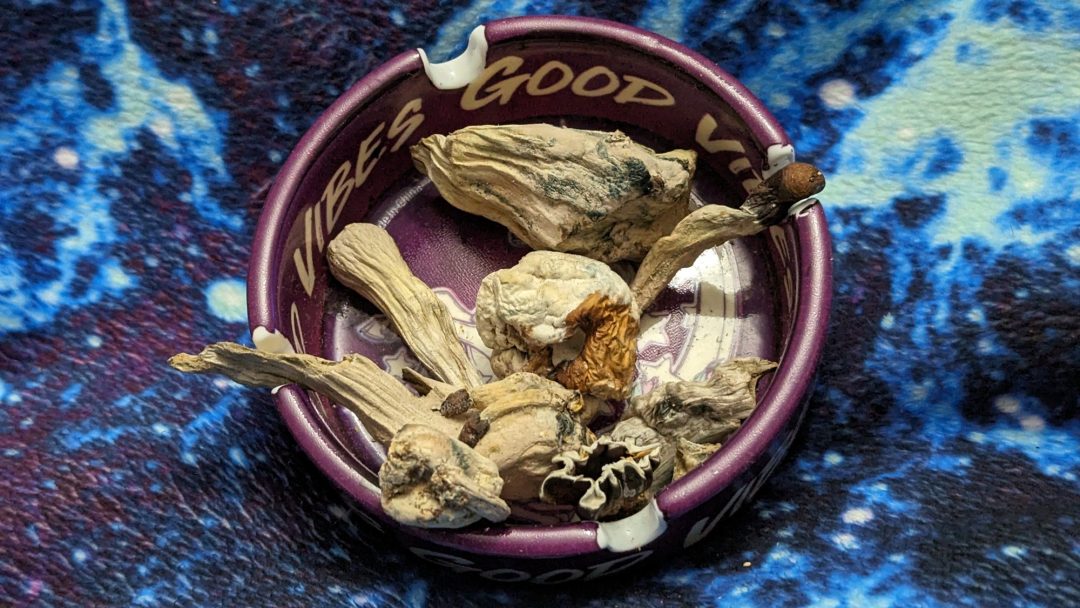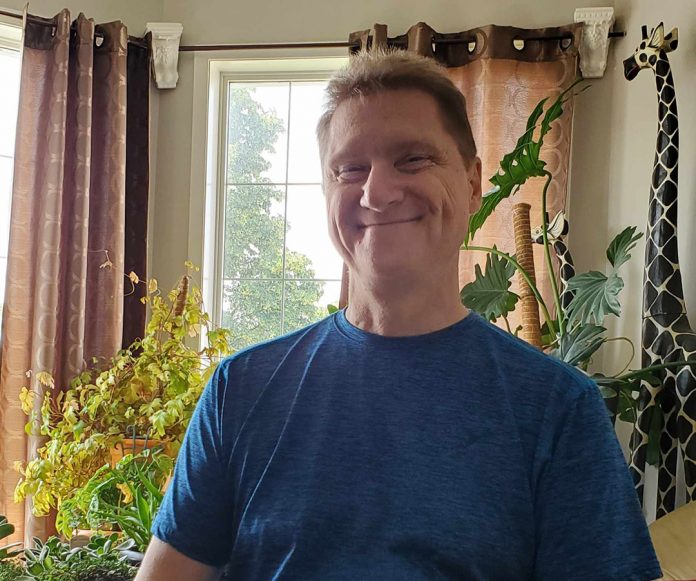Three years after receiving a stage four colon cancer diagnosis, Thomas Hartle began experiencing end-of-life anxiety.
He worried that the tumours in his chest could rupture or his intestines could be fatally blocked, and it left him fearful.
“Death became a very immediate thing,” he said. “It could happen to me unexpectedly at any time.”
At the core of Hartle’s end-of-life anxiety was the thought of leaving his wife alone to care for his two children, who are both on the autism spectrum.
After exhausting traditional treatment options, Hartle became Canada’s first legal psilocybin therapy patient in August 2020. He is now an advocate for legalizing the substance for medical use.
“Previously, I couldn’t even say the sentence ‘Someday I won’t be there for my family,” he said. “The psilocybin allowed me to approach these subjects with a little bit of a detachment.”
In his experience, psilocybin allowed him to view his problems as if he were watching somebody else go through a terminal illness without feeling those “hot emotions on the topic.”
“It allowed me to address the really difficult, painful things in a way that’s physically impossible for me to do without the psilocybin,” he said.
Pro-psychedelic Canadian advocates argue that there are too many barriers for patients like Hartle to access the potentially life-affirming treatment.
Currently, patients in Canada who want to access medical psilocybin must apply for the Special Access Program (SAP), a process that can sometimes take longer than a year to play out.
The applicants must have a life-threatening diagnosis and have exhausted all other avenues of treatment.
John Gilchrist is the communications manager for the psychedelic medicine advocacy group TheraPsil, a non-profit organization that helps patients navigate through the barriers of the SAP program.
“The barriers in this program are pretty serious,” he said. “You have to find a prescriber who is knowledgeable in psychedelics and would feel comfortable in supporting your application.”
Patients who applied for the treatment through the SAP system have been denied psilocybin therapy because they had yet to try electroconvulsive therapy, which induces seizures in the brain.
He says that even if patients are accepted through the SAP program, they still have to pay out of pocket for the therapy session, an expense that can cost thousands of dollars for a single treatment.
The intersection of psychedelic therapy and Medical Assistance in Dying (MAID) is a significant point of advocacy for TheraPscil.
In March of 2024 an amendment to MAID will include mental illness as a sole condition to be eligible for MAID. Currently, patients with irremediable conditions can access MAID.
“If you have the right to die, you should have the right to try,” Gilchrist said.
For patients with terminal illnesses, there are fewer barriers to accessing MAID than pscilocybin, which has shown “life-affirming results just from a single dose,” Gilchrist said.
“We’ve seen patients in our organization that have booked an appointment to die using the MAID system, then tried psilocybin and cancelled their appointment,” he said, “they found something in that therapeutic session that affirmed their will to continue living.

Hartle said he was never experienced with cannabis or any other drug before his cancer.
“If this is a kind of a treatment that is effective for somebody as ordinary as I am, it has to be also effective for other ordinary people too,” Hartle said.
Though there are gaps in psychedelic research due to the history of legislation surrounding it, studies show that psychedelics like psilocybin mushrooms promote neuroplasticity in the brain.
It allows the brain to make new connections. “So you are producing these new circuits in there that say ‘I’m not avoiding this anymore,’ which is what we usually do,” Hartle said.
The psilocybin treatment allows patients to make new connections in the brain that associate those otherwise hard-to-address issues with feelings of acceptance.
Melanie Dignam is a psychotherapist in Toronto, Ontario. She’s been a psychedelic-assisted therapist for two years.
“It’s not for everybody, and it’s not effective for everybody,” she said. “But there are a lot of success stories, too.”
She’s said she’s had clients who’ve done three “journeys” in a year. “Six months later, there are still benefits from those journeys,” she said.
In contrast, she’s had another client who had a “very destabilizing and big experience.” She said that the patient is still integrating that experience and hasn’t gained many benefits to their overall mood.
Hartle advocates for psilocybin to be medicalized. He doesn’t think it should be accessible to all Canadians recreationally.
“I would like to have my family doctor be able to refer me to a therapist who is qualified and experienced with the use of this,” he said, comparing it to other types of specialist appointments.
“This is a medical decision I think should be between patients and doctors.”




